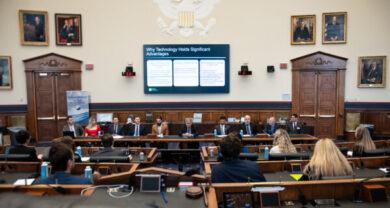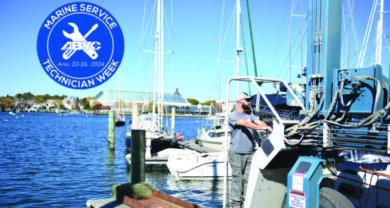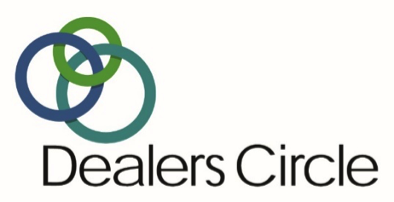MRAA giants panel targets industry problem areas
LAS VEGAS, Nev. – To no one’s surprise, Genmar Holdings Chairman Irwin Jacobs stole the show with his controversial comments during the Marine Retailers Association of America (MRAA) Industry Giants panel last night. What did comes as a surprise to the audience, however, was the amount of agreement on key industry issues among the panelists.
Topics covered included dealer agreements, model year timing, product quality, meeting consumers’ expectations, and an industry-wide marketing campaign.
Directing the discussion were MRAA President Phil Keeter and Massachusetts-based Russo Marine owner Larry Russo.
Avoiding legislation
The manufacturers on the panel universally agreed that legislation is not the answer for dealer agreements.
US Marine’s Dave Taylor said he believes that relationships between parties are much better when they’re controlled by those parties, rather than when controlled by the government. However, he admitted that there is room for further improvement in this aspect of interaction between manufacturers and dealers.
He also explained that US Marine is working toward helping its dealers become more profitable, improving product quality and growing their service to dealers.
Genmar’s Jacobs said that he is rolling out three-year agreements to dealers who “deserve” it. And while he stated that legislation isn’t the solution, he warned that if boat builders don’t improve their relationships with dealers, they will be faced with further legislation.
“Dealers get cancelled, some for the right reasons, some for the wrong reasons,” he said. “The industry has to wake up to the needs on both sides.”
John Deputy of Godfrey Marine said his company still relies on an “old school handshake” and explained that “a contract is about communication.” When issues come up between Godfrey and its dealers, the company negotiates a fair resolution rather than relying on a contract, he explained.
Best time for new model year still being debated
While Genmar has declared that it believes September is the best time for the model year turnover, panelists made it clear that more discussion is necessary for the industry to agree on a date.
“We’ve always preferred a July date,” said Chaparral’s Jim Lane, who explained that it allows dealers to carry over the least amount of inventory and allows the manufacturer to meet fall boat show requirements.
US Marine’s Taylor said it breaks down into two main issues: the timing of the dealer meetings and the timing of the model year. It is disruptive for the dealers to attend meetings in the summer during their prime season, he commented, and US Marine is moving its dealer meetings to later in the year. However, it also would be wrong to load dealers up with inventory during the off-season, he said.
Russo ended the line of discussion with a reminder to the manufacturers. “We, your customers, want it changed.”
Manufacturers agree quality must improve
Another area of agreement among the panelists was the need for continued improvement in product quality throughout the recreational marine industry.
“Our industry must change from a product quality standpoint,” said Roch Lambert of Bombardier’s Boat and Engine Division. “Our quality needs to improve dramatically.”
Lambert also recognized that the industry has made progress in the area of quality over the last five years, progress that needs to continue.
Godfrey’s Deputy said it isn’t the manufacturer alone who has to help improve product quality. Dealers should be considering product quality in deciding which manufacturers to do business with, he suggested.
Mercury’s Jack Malone and Clint Moore of Volvo Penta also mentioned the importance of engine manufacturers working with boat builders to ensure that the two products are correctly integrated and well matched.
Yamaha’s Tim Fernandez pointed out that engine installation is the source of a lot of the problems consumers discover. One of the reasons why the ATV and snowmobile industries have fewer warranty problems may be that they consist of one piece, he explained.
He also said that poor propeller choice and engine installation on the part of dealers can result in customer satisfaction problems.
Though consumers report their worst experiences in the industry are at the dealer level, said Fernandez, all sectors of the industry share in the responsibility for that experience, not just the dealer.
Chaparral’s Lane said boat builders should consider becoming ISO certified, working more closely with their engine suppliers and testing every system they have in place. In addition, they should keep in mind the relationship between quality and the suppliers they work with, he added.
During the quality discussion, the potential of the National Marine Manufacturers Association’s certification program was discussed. Some panelists expressed a desire to see a more stringent certification process put into place, something NMMA President Thom Dammrich said the association is considering. In fact, Dammrich said that, at some point in the future, certification may become a condition of membership; however, he added that implementing such a program would be a gradual process, if it becomes a reality.
Panel agrees industry not meeting expectations
All of the panelists also seemed to agree that the industry isn’t currently meeting consumers’ expectations, despite improvement.
“The customer has got to have a better experience than he has today,” said Lane.
Keeter countered that the automotive industry is meeting his expectations as a consumer and asked why the marine industry can’t do the same.
In response, Jacobs asked and then answered his own question. “When did American auto companies meet consumers’ expectations? When they were forced to. And that time is coming [for the marine industry.]”
The lowest of the low
Part of the reason the industry isn’t living up to expectations is because of the 10 percent of dealers and boat builders that are providing the worst levels of product and service to their customers, some panelists suggested.
There seemed to be consent that the industry needs to get rid of or transform this group to rise above some of its current problems.
For one, abuse of warranty policies by the lowest 10 percent of dealers is costing those dealers their integrity.
Lane said dealers have to earn payment of retail labor rates, demonstrating that they are well trained and are providing good customer service; however, while Jacobs agreed, he said there are dealers now who have earned this and aren’t getting it.
This led back to a discussion of how the boat builders need to continue to work to help their dealers become more profitable by rewarding those who deliver performance.
“The dealer doesn’t make enough money today for how hard they work,” Jacobs stated.
Is it possible to growing boating today?
The final topic of conversation covered by the panel was what the industry can do to grow boating, especially in light of boat builders’ renewed exploration of the issue through the NMMA/Transamerica meetings.
US Marine’s Taylor pointed out that one potential barrier to growing boating is a growing lack of access to our country’s waterways.
Genmar’s Jacobs said that he doesn’t think the industry can grow given the “fundamental problems” it currently has on its plate.
Volvo Penta’s Moore said that if his company could invest to attract more people to the Tier I dealers and builders, it would do it “in a minute,” but that driving new customers into boating when they might encounter that lowest 10 percent would be a mistake.
Jacobs suggested, however, that “there will be a separation” between the winners and the losers in the marketplace very soon.
“I have never risked so much in my life than in the last five years,” he said, predicting that th




